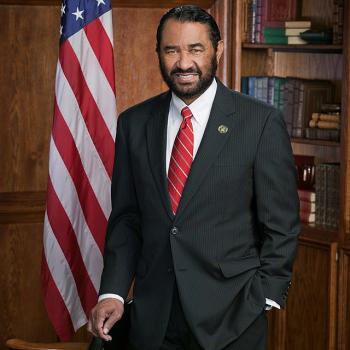Prosecutorial discretion.
Now there’s a nice phrase.
Another phrase that’s almost synonymous with prosecutorial discretion is selective prosecution. One is considered a sometimes valid, if often abused, tool in the prosecutorial toolbox. The other heads off into the dark hinterlands of overt discrimination and flat-out corruption.
From what I’ve seen, selective prosecution is closely aligned with those other destructors of justice: subornation of perjury and tampering with the evidence.
Taken together, these little prosecutorial peccadilloes have the ability to overturn our justice system and make it into a tyranny.
Prosecutorial discretion, when mis-used for political demagoguery, can easily become a means of blocking the system and turning the whole legislative/judicial process into a sham. Prosecutorial discretion aligned with political demagoguery is so close to selective prosecution that it’s difficult to differentiate between them.
My colleague, Leah Libresco, chimed in on the question of prosecutorial discretion yesterday with a fine post on the behavior of two elected officials. These two people are at the opposite ends of the ideological spectrum on what they are demagoguing about, but their misbehavior is based on an identical misapprehension of the powers of their office.
One is Kathleen Kane, the Attorney General of the State of Pennsylvania. Attorney General Kane announced a few weeks ago that she would not do the job the voters of the state of Pennsylvania elected her to do. She would not defend the state’s law defining marriage in court. Why? Because she doesn’t agree with the law. She seems to think that the law is immoral.
Her announcement was greeted by cheers from gay rights activists and uncomprehending silence from most of the citizens she betrayed. Attorneys General have gone about the business of doing their jobs for so long that most people just take it for granted that they will do them. In fact, a lot of people don’t really understand that when an attorney general flat-out refuses to do their job in this way, it is, and should be, an impeachable offense in most localities.
The other is a sheriff in Baton Rouge Louisiana who has been arresting homosexuals for violation of what sounds like the state’s anti-sodomy law. The Supreme Court overturned this law in 2003. I would guess that the sheriff didn’t agree with this decision. He may very well mirror Attorney General Kane by thinking that the decision is immoral.
This debate about where personal morality ends and the responsibilities of office begin is not nebulous. It also does not apply to employment situations such as whether or not a pharmacist is required to fill prescriptions for RU486, a nurse should be required to assist in an elective abortion or a florist must sell flowers for a gay wedding. But it applies absolutely to elected officials.
The difference — and it is an enormous difference — is between ordinary employment and elected office. An elected official who refuses to fulfill the requirements of their job or who deliberately oversteps the limits of their powers, is violating a public trust. They are violating the Constitutional privilege to hold office and execute the powers of the people in the name of the people.
Public office is not mere employment. It is the indispensable ingredient of the smooth functioning of a just and stable government. As such, it is incumbent on every and all elected officials to do their jobs to the best of their abilities and not the abuse the powers of their office.
I react to both the situations described above, not, as Leah did, as a philosopher, but as an elected official who has been charged with fulfilling the duties of office for 18 years. I understand several key things that proponents of these two elected officials’ actions won’t accept.
First, law enforcement, from top to bottom, is not law making. Law enforcement enforces laws. It does not write them. If Attorney General Kane wanted to work to overturn Pennsylvania’s marriage law, there were many options open to her, including running for election to a law-making position. Since she is an attorney, she might also have considered not running for office at all and filing cases against the law, maybe doing it pro bono.
An Attorney General is not supposed to even take positions on the laws which they are sworn to defend and uphold. By that I mean that she should not be out making stump speeches against such laws — or for them, for that matter. Her job, and I keep saying this, but nobody seems to hear me, her job is to uphold and defend the laws of the State of Pennsylvania.
This is especially grave since, like all elected officials, she is the only person in her jurisdiction (in this case, the entire state of Pennsylvania) who holds the power of her office. If she refuses to do her job, the job can not be done by anyone else.
This is equally true of the sheriff in Baton Rouge. As an elected official, he is the only sheriff in that jurisdiction. No one else can do his job. Also, he is not a law maker or a law interpreter. He is a law enforcer. The decisions about what laws he should enforce are made by Congress, the legislature and the courts.
Elected office is a privilege, not a sentence to be served. If any elected official finds that they cannot in good conscience perform the duties of their office, they have the free right to resign at any time.
Leah Libresco used a quote from a play and movie about my patron saint, St Thomas More, in her analysis. Thomas More was the Chancellor of England. Despite the enormity of this position, he resigned when his conscience would no longer allow him to discharge his duties as the King demanded. This is a good example for all of us who hold office.
If Attorney General Kane can not in good conscience do the job that her office requires of her, she has the clear option of resigning. What she does not have is the option of refusing to do her job and thereby depriving the people of Pennsylvania of the legal representation they are Constitutionally entitled to.
I am glad that Leah found this example giving the other side of this argument. Maybe it will help clarify what is at stake for those people who are so enthralled with their particular advocacy that they are willing to support overturning the very structure of government that gave them the right to advocate in the first place.
From Unequally Yoked:
I’m a little troubled by the way same-sex marriage is becoming de facto legal in Pennsylvania. When I was having SCOTUSblog parties back in June, I found the reasoning based on standing kinda messy. If a law is challenged, it seems like the appropriate state officials should be obligated to defend it. Ducking it seems like a odd kind of de facto veto. And not a proper civil disobedience-y one, a la Mayor Jason West of New Paltz, who conducted then-illegal marriages and was charged for it.
And now this is playing out in Pennsylvania. The PA Attorney General Kathleen Kane declined to defend her state’s ban on same-sex marriage, and it’s unclear who will pick up the baton, or if anyone will be left with standing to do so. The proper way to overturn laws is repeal or, if they’re actually unconstitutional, letting them have their day in court. Not short-circuiting the system over a conscience objection.
















